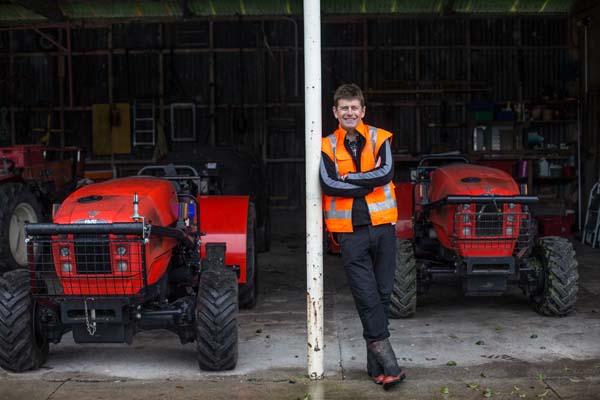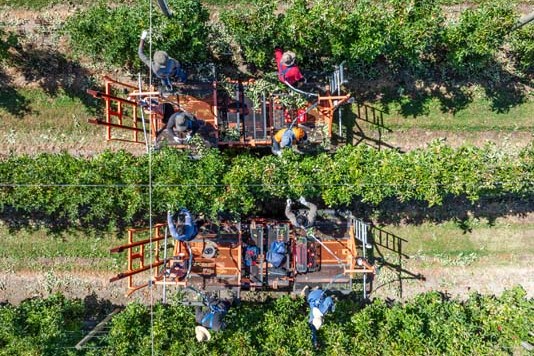Words from the wise
Five contract milking operators give some wise advice on how to make the most money and have the most success running your own contract milking business.

DO YOUR HOMEWORK WELL
Nick and Kylie Marriott – currently contract milking 900 cows have also been involved in a sharemilking partnership which has bought a farm.
 Contract milking can be a good vehicle to produce cash returns that you can then invest to grow equity faster.
Contract milking can be a good vehicle to produce cash returns that you can then invest to grow equity faster.
What falls out the bottom of the budget in terms of profit is more important than your contract rate – understand your costs.
We’ve turned down contracts once we’ve done our homework on the budget and risks so be prepared to walk away if you can see it’s not worth it. Do your homework well when you’re assessing a contract opportunity.
Sometimes you have to follow your gut too – if something just doesn’t seem right, it probably isn’t.
Look for opportunities to rear calves or grow stock numbers to help equity gains or boost income.
Learn how to understand, set and monitor your budget.
Don’t buy the flashest gear but don’t buy the cheapest either – good quality second-hand gear will be worth paying a bit more for.
Put money aside from your first year to pay tax in your second – not being prepared for that can burn you.
Be disciplined and tight on drawings – stay away from personal debt or hire purchase for personal things.
We’re members of Federated Farmers – they can help with employment questions when you’re new to employing staff.
Use a payroll system – we use PaySauce – to make sure you’re getting it right with holidays and hours etc.
Do a DairyNZ Mark And Measure course- you’ll see just what you can do, how you can grow and you’ll learn a lot.
CONTRACT RATE IS ALMOST IRRELEVANT
Jamey Allin and Jenna Wills – contract milking 620 cows in fourth season, going 50/50 sharemilking next season 560 cows.
 Contract rate is almost irrelevant – your profit is the most important factor and that depends on costs and whether the production in the budget is achievable.
Contract rate is almost irrelevant – your profit is the most important factor and that depends on costs and whether the production in the budget is achievable.
Understand the farm and what is can produce, check the production the farm owner is budgeting on has been achieved before. Do your analysis on what happens if milk production falls short.
A contract where the farm owner pays you an equal split of 85% of target production each month means you can cashflow the winter months.
Contract milking returns are more certain than variable order – income is the biggest variable.
Remember payout can drop suddenly from one season to the next and that can be tough to recover from.
An unattractive farm in terms of infrastructure makes it harder to find good staff – they can pick and choose at the moment.
Keep drawings low, save hard and be prepared to work hard.
Having the opportunity to rear stock can help you build a herd and get income if you can lease them to the farm owners.
Ask a lot of questions up front before you sign anything and do your homework. Read the whole contract and understand all of the budget.
Find out what the contingency plans are – things go wrong, wells blow, earthquakes, droughts – talk about what would happen in some of those situations, have it written down.
LEARN ABOUT TAX
Floris and Jen Coetzee – contract milker for eight years, now equity managers on 1100-cow Canterbury farm.
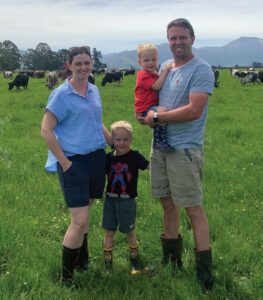 Don’t be too focused on the contract rate – sometimes you can make less money with more income so understand the costs.
Don’t be too focused on the contract rate – sometimes you can make less money with more income so understand the costs.
Learn about tax – you might not pay much or any in the first year but you need to put aside money because you’ll probably get hit with a tax bill in the second year.
Get a good farm accountant who will go through your budget with you not just do your financial statements, you’ll learn a lot from them. They know the benchmarks and can spot where your costs are high and where you’re doing well.
Do budgets for worst case scenarios to see what happens if you’re say 10% down on production – how far does it have to go down before you’re in trouble?
Do your own GST – you will spot any overcharging someone else might miss and you’ll have a better understanding of costs.
GOOD COMMUNICATION IS KEY
John Duncan – formerly a diesel mechanic, worked on another farm, now contract milking 540 cows for his parents in his fourth season.
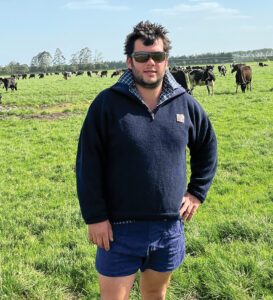 Get a good farm adviser if you’re starting out – they act as a go-between no matter who you are working for and can be the person in the middle which could be a good thing if you’re working for family.
Get a good farm adviser if you’re starting out – they act as a go-between no matter who you are working for and can be the person in the middle which could be a good thing if you’re working for family.
I’ve got a great working relationship with my parents and I think you’d need that if you’re going to work for family.
It’s a good idea to go and do other things before coming back to family operation.
In his initial job as contract milker, he had a straight per kilogram milksolids (kgMS) payment – reduced risk for farm owner. As he proved himself he moved to a more hybrid type contract and gets a percentage payment once payout hits a certain level.
Biggest learning curve is becoming the boss and employing people. Good communication is key – put yourself in their shoes to see it from their point of view sometimes. Be fair.
Use rural professionals such as your accountant with managing the financials and learn from them so you understand it.
Get help with the aspects of running a business you struggle finding time for or don’t enjoy that much – like the office work.
Go to discussion groups and workshops to upskill yourself.
DO YOUR DUE DILIGENCE
Liam and Lauren Kelly – 50/50 sharemilkers with 670 cows, have contract milked and been variable order sharemilkers.
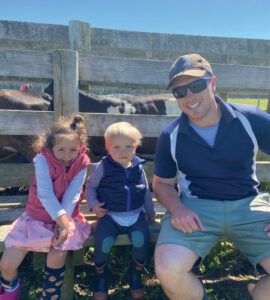 Pick a good business partner whose values align with yours.
Pick a good business partner whose values align with yours.
Do your due diligence – when they’re interviewing you, you’re interviewing them too. Sometimes the jobs with the most potential and biggest progression opportunity aren’t the prettiest – look for where you can add value through your skills to increase production.
Have clarity on the owner’s policy on supplement use, nitrogen use and know what they expect will happen if there’s a drought or an irrigator breaks down – what are the contingency plans. Talk to locals, contractors, the vets about the farm and the people – reference check them, do your due diligence. Don’t get hung up on the small things – remember it’s a relationship with give and take.
Be wary of buying the flashest gear – you don’t need your money tied up in depreciating assets. Learn to do things like servicing your own bikes – it all saves money.
A good team makes a world of difference – recruit well. If you’re looking at a new contract milking job be aware poor housing won’t attract good staff.
Take time to listen to your people, learn a bit about them, let the team have an input in to the roster.
Be wary of costs going up rapidly in the last few months – revisit the budget. If you have a fixed rate you’re not benefiting from the high payout but you’re getting squeezed with higher costs. A good accountant will make sure you’re getting the benefits of running your own business in terms of tax deductibility. Be transparent with your farm owners about your goals – if they know they’re more likely to work with you towards them.




